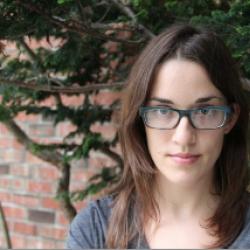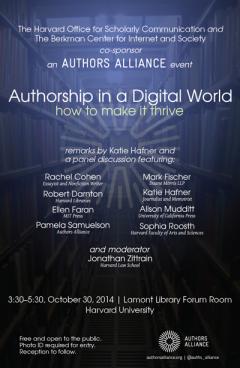
Sophia Roosth is an assistant professor in the Department of the History of Science at Harvard University. Her research focuses on the twentieth and twenty-first century life sciences, examining how biology is changing at a moment when researchers build new biological systems in order to investigate how biology works.
Her first book, an ethnographic account of synthetic biology titled “Synthetic: How Life Got Made,” is forthcoming with the University of Chicago Press (2015). In this work, Roosth asks what happens to “life” as a conceptual category when experimentation and fabrication converge. Grounded in an ethnographic study of synthetic biologists, she documents the social, cultural, rhetorical, taxonomic, economic, and imaginative transformations biology has undergone in the post-genomic age. In this regard, her interests include how synthetic biologists think about and act upon intellectual property decisions ranging from patenting and copyright to credit, attribution, and publishing.
Roosth was the Joy Foundation Fellow of the Radcliffe Institute for Advanced Study (2013-2014). She was previously a postdoctoral fellow at the Pembroke Center for Teaching and Research on Women at Brown University and a predoctoral fellow of the Max Planck Institute for the History of Science in Berlin. She earned her doctorate from the Program in History, Anthropology, and Science, Technology, and Society at the Massachusetts Institute of Technology in 2010. Roosth’s research has been supported by the National Science Foundation and the Wenner-Gren Foundation. Her recent publications have appeared in journals including Critical Inquiry, Representations, Differences, American Anthropologist, Science, and Grey Room.
